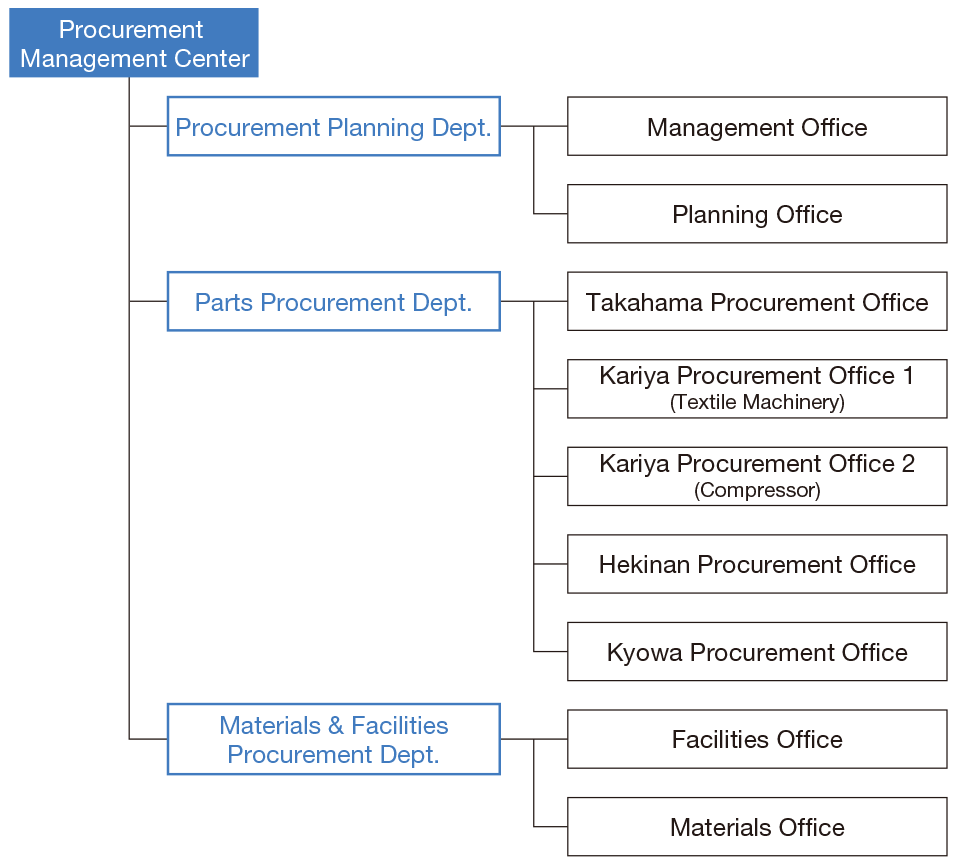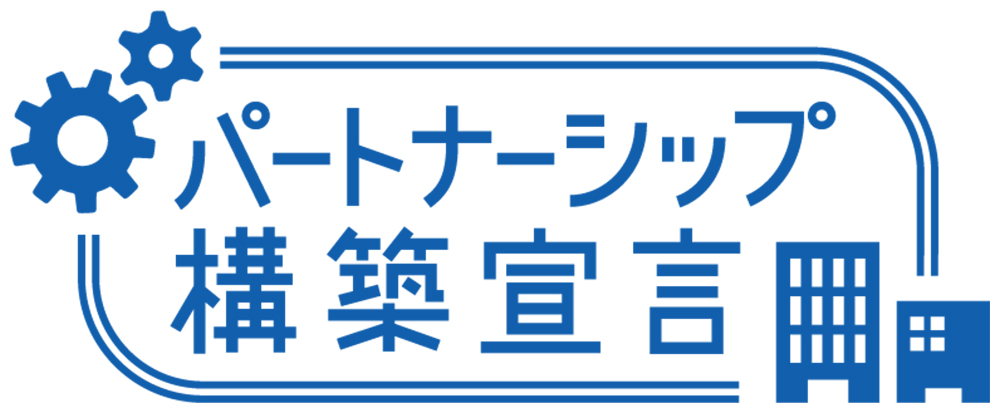Major Initiatives
Implementation Structure
In recent years, the environment surrounding the supply chain has undergone significant changes, including the enhancement of sustainability and the promotion of fair transactions. To respond swiftly to these changes and strengthen governance of procurement functions across the Company, we established the Procurement Management Center on January 1, 2025, unifying all procurement functions Company-wide. Additionally, the procurement organizations at the Head Office and business divisions were reorganized into three departments: the Procurement Planning Department, the Parts Procurement Department, and the Materials & Facilities Procurement Department.
Procurement Structure

Sustainability Guidelines for Suppliers
Reinforcing Relationships with Suppliers
■Declaration of Partnership Building

We publicly announced our Declaration of Partnership Building in September 2021 and have been striving to form a good relationship with our suppliers. The declaration clarifies that we make corporate and focused efforts to realize co-existence and co-prosperity with our entire supply chain, start new forms of collaboration regardless of company size and corporate group affiliations, and observe the preferred trade practices between a parent business operator and its subcontractors (included in the business promotion criteria of the Act on the Promotion of Subcontracting Small and Medium-sized Enterprises).
■Whistleblowing and Consultation Hotline for Business Partners
We have established a whistleblowing and consultation hotline for all business partners. This hotline accepts reports and consultations regarding compliance violations, such as misconduct, legal breaches, and harassment, by TICO or its executives and employees.
■Achieving Carbon Neutrality in Our Supply Chain
To achieve carbon neutrality, we strive to deepen mutual understanding and promote initiatives through ongoing dialogue with our suppliers. We hold sessions to explain carbon neutrality to our major suppliers. In FY2025, we conducted a survey on the CO2 emissions of suppliers and asked them to implement activities to reduce their emissions. As part of our support for suppliers, we share examples of our energy-saving initiatives and provide information related to renewable energy. We will continue to enhance our collaborative efforts with suppliers to realize carbon neutrality across the supply chain.
Human Resources Development to Enhance Procurement Knowledge
We proactively provide personnel in charge of procurement at TICO and affiliated companies with education to enhance procurement knowledge. In FY2025, we provided education mainly on Japan’s Subcontracting Law as well as topics related to sustainability such as human rights and the environment. We also utilize e-learning to prevent not only personnel in charge of procurement but all employees from the unjust use of a superior bargaining position as stipulated in antitrust laws and thoroughly inform them of the Subcontracting Law to ensure fair subcontracts.
Participants of Subcontracting Law-Related Seminars

Business Continuity Management (BCM)
In further promoting BCM, we are making concerted efforts with suppliers to reduce associated risks by implementing specific measures. In FY2022, to deal with frequent natural disasters in recent years, we rebuilt a system to identify disaster-induced damage to suppliers. The use of the system has enabled us to perform the impact survey in a more efficient and timely manner and contribute to their BCM.
Moreover, in order to recover quickly and maintain production, we continued to reinforce our earthquake and flood control measures at each base while at the same time reevaluating an appropriate level of inventories and examining ways to decentralize suppliers and production bases.
Safety and Health Activities for Suppliers
Based on the analysis of accidents that occurred in the previous fiscal year and information on legal revisions, we promote safety and health activities for the next fiscal year for the prevention of similar accidents through these sessions.
With a view to seeking zero accidents (fires and explosions), industrial accidents, and disorders on the TICO premises, we have established the Safety and Health Council with subcontractors located on our premises. When an accident or industrial accident does occur, we ask them to report it to us and investigate the cause in accordance with the rules and procedures stipulated by TICO. Also, we jointly create a comfortable working environment by sharing information on accidents and disorder prevention activities of TICO.
Using past accident cases as a reference, we periodically share various information, including matters that should be observed to prevent similar accidents, with subcontractors of outsourced work.
Also, we request the cooperation of subcontractors located on our premises to perform risk assessment in the construction work planning stage to identify associated risks and encourage them to always discuss in advance a safe work method with TICO’s departments planning a construction project.
